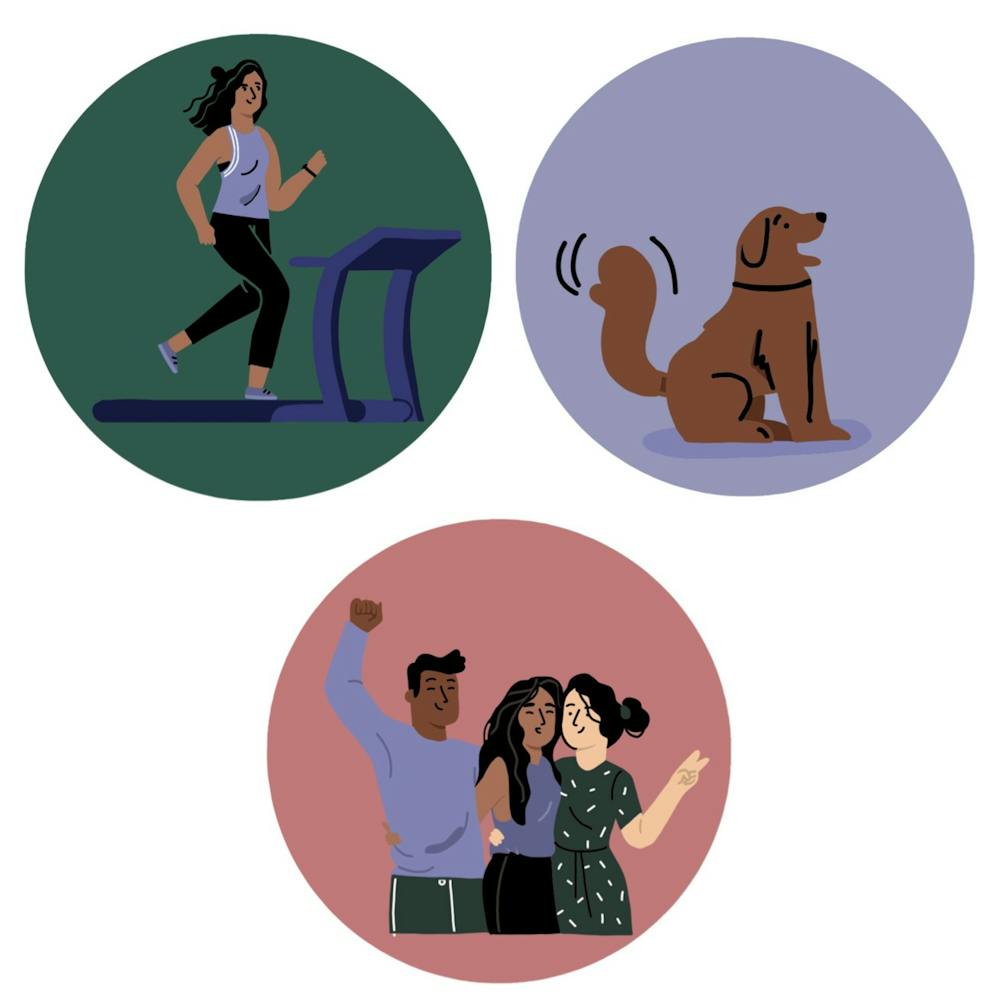Mental health undoubtedly plays a significant role in academic performance and universities have made recent strides towards prioritizing support for student mental health to foster a healthy and successful learning environment. While a normal academic year already fosters a stressful environment that can negatively impact students’ mental well-being, the COVID-19 pandemic undeniably took an even greater toll on their mental health — particularly considering the adoption of social-isolation measures and a transition to virtual classes for many students.
After the outbreak of COVID-19 in the United States in March, students who lived on Grounds were sent home to navigate new online learning strategies while having to integrate their academic and home lives together — all in the absence of an in-person social support system. Third-year College student Eleni Fafoutis describes dealing with the impact that such isolation had on her mental health as a student.
“Part of the transition has been realizing and adjusting to being alone a lot more,” Fafoutis said. “During the lockdown, I felt very lonely at first. I am an only child so I was at home the entire time, and of course I love my parents very much, but it was challenging not being able to see other people.”
When the University invited students back to Grounds for the fall semester, students who chose to return had to once again readjust to a new situation — one in which they could enjoy the presence of some friends and peers, but on an unprecedentedly restricted level due to social distancing guidelines.
“Coming back to school, I had to find a new normal, and part of that was reaching out a lot more to my support systems — my family and my friends — and relearning what it means to be who I am while also being safe,” Fafoutis said. “I’d definitely say that it was really hard at the beginning, but I have learned how to adjust as time has passed.”
First-year students faced a unique set of challenges as they arrived to Grounds for the first time this fall. Those who chose to move into dorms were subjected to navigating virtual college courses while simultaneously learning how to live self-sufficiently in a safe, socially-distanced manner. First-year College student Sophie Kim fortunately arrived at the University alongside friends from her hometown, but she still expressed the challenge of making friends amid a pandemic.
“I feel lucky because I am from [Northern Virginia] and there are a lot of people from [Northern Virginia] at U.Va. so I already had friends,” Kim said. “Even then, it was hard to branch out. Joining clubs this year was much less accessible since there was no in-person activities fair.”
The impact of such social limitations for first-year students carried into the academic aspect of this past fall semester in that many students worked through challenging courses alone. Zoom made it very difficult for students to socialize and become acquainted with each other, so many students, especially first years, lacked the comfort of peer study groups typical of a normal semester.
“I really did not know anyone in any of my classes,” Kim said. “Except for my chemistry lab … all of my other classes were mostly big gen ed classes with 100-plus people, so it's not like I could know a lot of people or reach out to anyone. Most people had their cameras off and were muted, so it was not a personal experience.”
In dealing with not only the general stress of the semester but also the added uncertainty and burden of the pandemic, many students found it beneficial to incorporate a self-care routine into their daily schedule. Self-care often looks different for everyone, but most people typically choose something they find enjoyable or relaxing, like walking or reading for pleasure. Because COVID-19 restrictions limit the ability to engage in social activities like going out with friends, Fafoutis has adopted new methods of prioritizing her mental health.
“Personally, I have benefitted from taking an hour or two every day for ‘me time,’” Fafoutis said. “Working out has been really helpful. I used to never work out, and now I try to work out every day, just to get the energy out and have a break from studying.”
On the other hand, second-year College student Rachel Herzog sought out a unique method of self-care this year by fostering cats from the SPCA with her roommates. With online classes, the additional time spent at home enabled Herzog, among many other University students, to give pets a temporary home while they were waiting to be adopted.
“Fostering has been a huge blessing for me,” Herzog said. “Having a cat or kittens in the apartment is so comforting. Right before an exam I can come out and pet them, which definitely is a huge stress reliever. Also, knowing that my efforts in fostering have such an impact on the lives of animals and their future owners is very rewarding.”
While students can make individual efforts to prioritize their own mental health through self-care, it can be equally as important for professors to show unprecedented levels of compassion and understanding during this pandemic. Virtually all students are faced with a unique set of challenges while navigating online classes, and some have even faced personal tragedies as a result of the virus. Herzog emphasized the valuable impact of professors who offered tangible support for students this past semester, especially in larger classes that can often feel impersonal over Zoom.
“I think that it is important for professors to make themselves available,” Herzog said. “We are at an upper level of education, but being flexible where they can is helpful ... My social psychology professor went out of her way to connect with students and gave students time to meet with each other, which is so important for students' mental health, especially first years who really do not know anyone.”
Despite the consequences that COVID-19 and virtual classes have had on students’ mental health — and consequently their academic performance — these tribulations have offered valuable opportunities for personal growth.
“I have definitely become more in-touch with myself as a student,” Fafoutis said. “I have been able to work a lot harder and figure out better study habits ... I think I have matured a lot as a student — learning through this adversity.”







